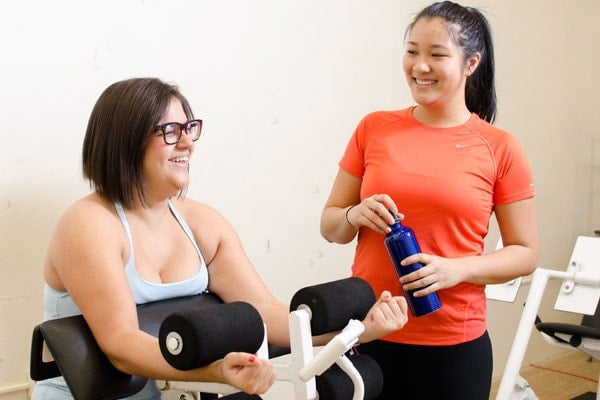
Exercise and mental health research gets a boost
Published: January 10, 2014
Researchers at the Faculty of Kinesiology and Physical Education are creating a centre that will focus on exercise and mental health – with the support of the Canada Foundation for Innovation.
Professors Guy Faulkner, Catherine Sabiston and Kelly Arbor-Nicitopoulos say a grant from the foundation worth more than $500,000 will help them create the Mental Health and Physical Activity Research Centre (MPARC).
MPARC will be a one-of-a-kind research facility dedicated to developing and evaluating interventions to promote physical activity and mental health among people at risk of inactivity and mental health problems, says Faulkner. Examples include mental health service users, cancer survivors and people with spinal cord injuries.
Starting next year, the funds will transform approximately 2,700 square feet of space at the Athletic Centre into areas specifically allotted for supervised exercise programs, data analysis, interviews and focus group discussions. The centre will also make use of existing Athletic Centre infrastructure, including recently-acquired Curves machines and new equipment for assessing physical activity and fitness.
“One of the flagship projects I’d like to lead is working with the many U of T students who have been wait-listed to receive specialized mental health care,” explains Faulkner. “We are starting to develop links so that we can provide exercise as an intervention tool while these students are waiting to receive specialized support.”
MPARC will bolster the Faculty’s partnerships with key Toronto collaborators, including the Centre for Addiction & Mental Health and Princess Margaret Hospital, says Faulkner. The centre will also create the capacity for large scale, international studies and help attract top graduate students and researchers.
“This funding provides us with the capacity to do a different type of research that we’ve not been able to do before – more controlled intervention and experimental research. This is the next logical, but very exciting, step for us as researchers. The proposed infrastructure will accelerate our research programs into developing interventions and then the knowledge translation that is critical for helping the many Canadians who are either inactive, suffering from a chronic illness, or both”.
(Read about research infrastructure at U of T funded by the Canadian Foundation for Innovation.)
Valerie Iancovich is a writer with the Faculty of Kinesiology and Physical Education at the University of Toronto.



